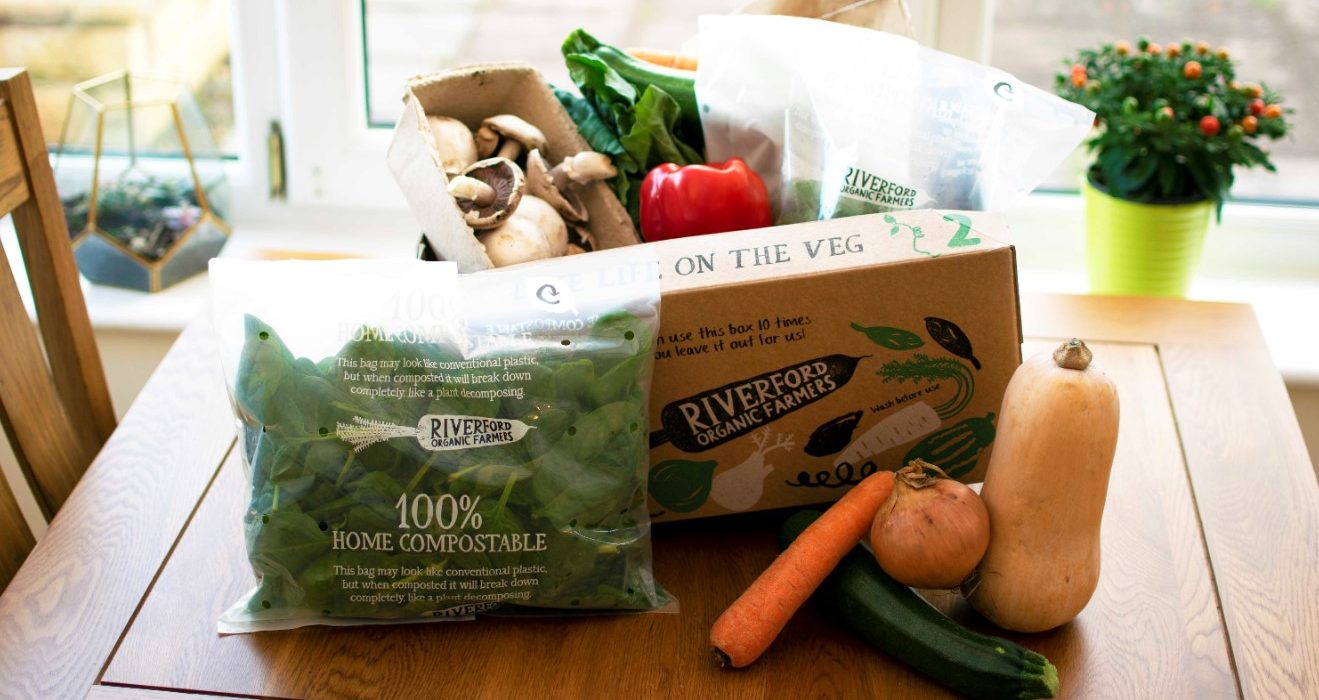Daphna Nissenbaum’s journey began with a seemingly simple yet increasingly frustrating experience: the challenge of reusing plastic water bottles for her son’s school lunches. Each time her son returned from school without the previous day’s water bottle, Daphna felt the weight of the accumulating plastic waste. This daily ritual of waste accumulation led her to question the sustainability of our packaging choices and the long-term environmental impact of our throwaway culture.
During a reflective jog, the pieces of the puzzle started to come together. Daphna envisioned a packaging material that would mimic nature’s efficiency, breaking down naturally without leaving a lasting footprint on the environment. Drawing inspiration from an orange peel’s ability to protect and preserve its contents while eventually biodegrading, Daphna’s vision for compostable packaging began to take shape.
This moment of clarity and inspiration served as the catalyst for founding TIPA in 2010. With a deep-rooted commitment to environmental stewardship and a mission to revolutionize the packaging industry, TIPA set out to create fully compostable packaging solutions that are both durable and eco-friendly. Thus, from a mother’s frustration emerged an innovative solution that has the potential to reshape the way we think about packaging and its impact on the planet.
TIPA’s Unique Approach: Compostable, Not Just Biodegradable
TIPA is dedicated exclusively to producing fully compostable plastic packaging. Unlike many biodegradable materials that simply break down into smaller plastic particles, TIPA’s products can be safely composted with organic waste. This means they break down into nutrient-rich compost, enriching the soil rather than polluting it. TIPA’s flexible packaging combines the performance capabilities of traditional plastic with the environmental benefits of composability, making it a truly revolutionary solution in the packaging industry.
The Challenge of Composting: Tackling Low Rates and Misconceptions
Despite the benefits of composting, its adoption remains limited. In the U.S., only a little over half of all yard waste and a mere 4% of food scraps are composted, according to the EPA. Moreover, there’s a widespread misconception that recycling is the best solution for plastic waste. In reality, only 9% of all plastic produced worldwide is recycled. TIPA faced these challenges head-on, staying true to its core idea despite pressures to compromise on partially compostable or recyclable products.
Staying True to the Vision: The Power of Commitment
Throughout its journey, TIPA has faced temptations to compromise its commitment to fully compostable packaging. Despite risks to the company’s survival, Daphna Nissenbaum and her team remained steadfast in their dedication to their core idea. This unwavering commitment has enabled TIPA to lead the market in compostable packaging research and development, proving that staying true to one’s vision can lead to innovation and success.
Seamless Integration: Making the Switch to Compostable Packaging Easy
One of TIPA’s key competitive advantages lies in its ability to integrate seamlessly with the existing plastic supply chain. TIPA’s films can be manufactured on the same production lines as traditional plastic, requiring only minor adjustments to existing equipment. This makes it affordable and sustainable for brands to switch to TIPA’s compostable materials without the need for significant investment in new equipment or facilities.
The Growing Demand: Brands Embracing Sustainability
In today’s evolving market landscape, sustainability has become a focal point for consumers and brands alike. Despite the higher cost compared to traditional plastic, TIPA’s compostable packaging is experiencing a surge in demand from forward-thinking brands committed to reducing their environmental footprint. As governments worldwide implement stricter regulations and taxes targeting conventional plastics, the appeal of TIPA’s eco-friendly alternatives has never been greater. The food industry, in particular, has shown a keen interest in TIPA’s products. Compostable packaging aligns seamlessly with the industry’s sustainability goals, offering a convenient disposal method alongside food scraps. This not only simplifies waste management for consumers but also fosters a culture of composting, further enhancing the environmental benefits.
As more brands recognize the long-term value and positive impact of adopting compostable packaging, TIPA’s market presence continues to expand. This growing demand underscores a broader shift towards sustainable practices in the packaging industry, signaling a promising future for eco-friendly alternatives like those offered by TIPA. With increasing awareness and commitment to sustainability, the momentum behind compostable packaging is building, paving the way for a greener, more sustainable future.
Making a Difference: Every Effort Counts in Building a Circular Economy
For Daphna Nissenbaum and the team at TIPA, every company that embraces their product and every consumer who composts their packaging is making a difference. In Hebrew, TIPA means “a little drop,” reflecting the company’s belief that every effort matters when it comes to reducing waste. By producing nutrient-rich compost from organic waste and compostable packaging, TIPA is contributing to a circular economy that enriches the planet. As Daphna puts it, “Together, we can change the world.”
Conclusion
Daphna Nissenbaum’s journey from frustration over plastic waste to the founding of TIPA showcases the power of a single idea to drive meaningful change. Through unwavering commitment and innovative thinking, TIPA has revolutionized the packaging industry with its fully compostable solutions. Despite facing challenges and industry pressures, TIPA has remained true to its vision, proving that sustainability and profitability can coexist. As more brands and consumers embrace compostable packaging, TIPA’s impact continues to grow, paving the way for a more sustainable and environmentally conscious future. With each compostable package that returns to the earth, we move one step closer to a circular economy that enriches rather than depletes our planet.

